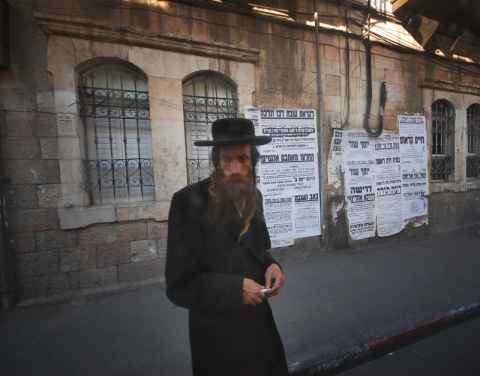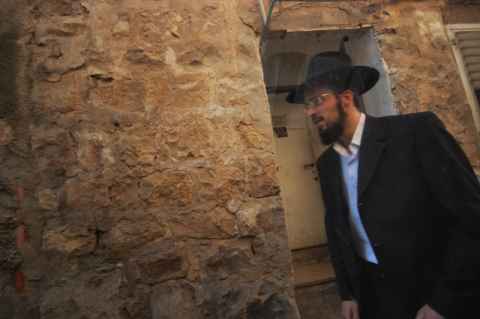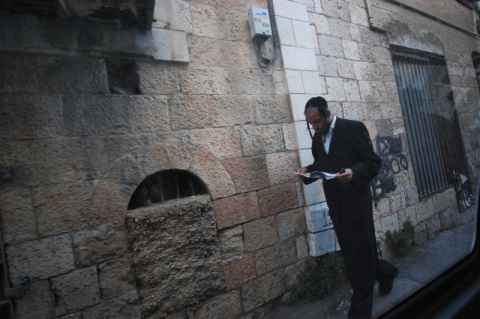
The posters in the background are called pashkevil[a] (pl. pashkeviln) and contain statements on how to lead a virtuous life. While some of them are signed by rabbis, most are posted anonymously. They can be seen as components of a public discussion, where readers can cover them up or remove them if they disagree, or simply adhere to them if they agree. They are also a way of trash-talking others anonymously as partof internal power struggles in the community, although such use is against the Torah.
2010-07-05 17:56


